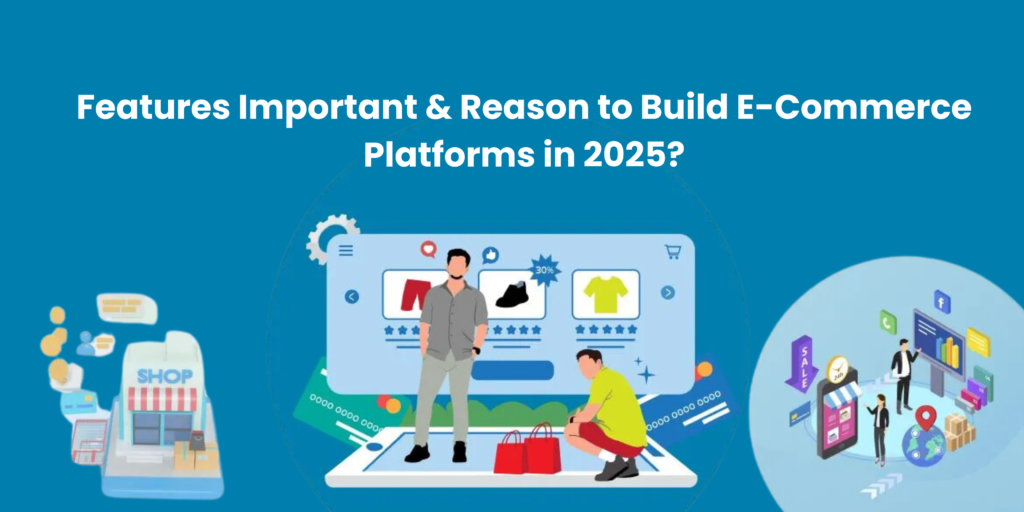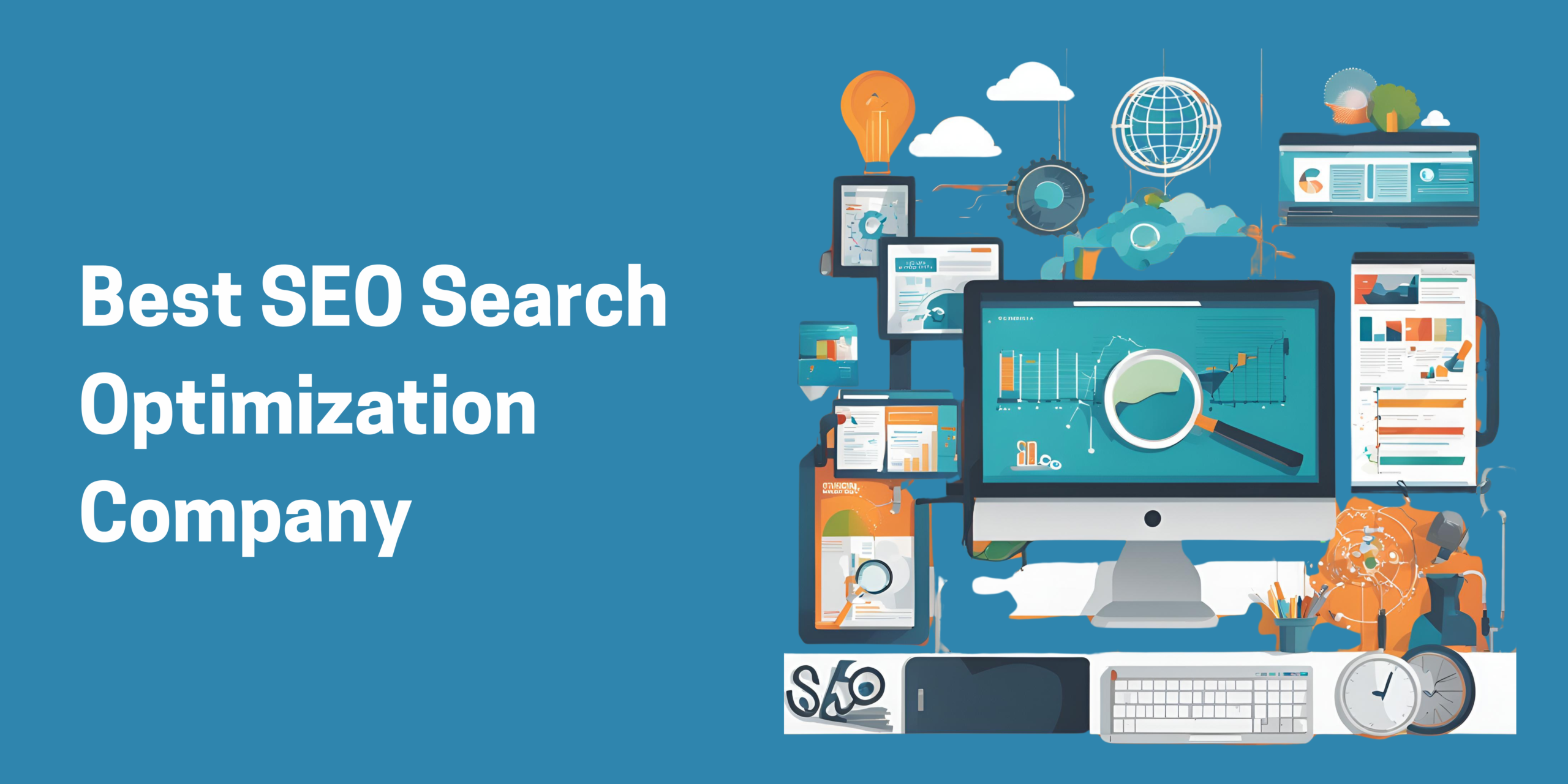Undertaking an eCommerce business can therefore be challenging, but also quite challenging when you start the E-Commerce store. However, you will evaluate a few platforms and compare your choices. If you are a beginner and planning to build an online business through your business website, it can be useful for technical specialists, or if you already have experience in eCommerce, to look into refining efficiency and future-proofing your website.
By 2025, online shopping will grow rapidly as people will love to shop online and conduct e-commerce business, which is expected to reach more than 8 trillion dollars. Whether it’s groceries, widgets, or gifts, the ability to shop online has changed our shopping habits for the better.
However, with this growth potential, the prospects of competition are also very high. Organizations are now creating sleek, professional answering services websites that entice and engage. An attractive and functional eCommerce website is now considered the foundation of any thriving internet commerce company. Clients need hot-launch runners, stable deals, and a nonproblematic purchasing process. To deliver this requires proper medication, or rather the right prescription, and the right approach to the eCommerce website.
What is an eCommerce Platform?

E-commerce platform development is a process of designing an e-commerce platform whereby companies can offer their products and/or services through an online market. It refers to setting up all tools, utilities, and even programs or systems required for running a justified online store, which includes listing products, recycling payments, managing guests, and delivery.
In essence, the digital platform serves as the foundation of the complete shopping process, enabling most commercial companies to sell merchandise or services directly to clients. Some examples of custom eCommerce solutions are Shopify, Woo Commerce, and Magento.
There is a list of the most significant and valuable options an eCommerce platform has to have:
- Product operation: This point lets you produce, edit, and arrange your product rosters. You can upload high-quality film and detailed descriptions, define force situations and prices, and classify your wares to offer easy navigation.
- Payment Processing: Accepting payments securely is essential for any business online. eCommerce platforms are integrated with colorful payment processors. Guests can, thus, pay with dis-benefit or credit cards or digital holdalls.
- Order Management: After an order has been placed, the platform assists you in covering its fulfillment. You can keep track of the status of your order, print shipping markers, and work with shipping carriers to ensure timely delivery.
- Marketing and Analytics Tools: Various platforms offer tools for connecting to marketing platforms, managing surveys, and recording website guests and their guests. These data are invaluable to optimize your deals. Using this awareness, organizations may create more focused advertising and improve overall client engagement.
- Storefront Creation: Guests can browse their details in this digital space, add them to the cart, and make the payment to complete the purchase. The eCommerce platform offers strict design guidelines to create an attractive and friendly online store that presents the brand’s image.
- 6. Inventory Management: An eCommerce platform keeps track of your force situations in real-time, so you don’t have to worry about manually checking out-of-stock particulars. It’s also possible to program automated cautions to notify you whenever force dips below a certain position. Force operation will ensure you have enough stock to satisfy guests’ demands.
- Checkout and shopping: wagon guests complete their purchase also. The platform facilitates a smooth checkout process, allowing guests to check their carts, enter their shipping details, and complete the trade safely.
- Customer Relationship Management (CRM): Tools You can ask the eCommerce web design agency to integrate CRM tools to help you control customer data, track purchase history, and indeed shoot specific marketing campaigns.
Reasons to Create an eCommerce Platform in 2025

Online shopping has numerous advantages for businesses that are not looking to open a physical storefront. Thanks to eCommerce platforms, you can produce an affordable website and also sell your particulars online. It’s also possible to drive guests to your online store and reach global guests.
Also, there are some of the major benefits of developing a custom eCommerce store in 2025.
1. Increased Deals
Store vacancy and infinite customer reach could help you bring about bigger deals. E-commerce companies use the lowest technologies to facilitate transactions and improve customer connections. If you set up an online store to sell your products, you automatically increase the supply and can adapt your stock to the demand of your guests. You can offer products or services overseas by conforming prices as per global request.
2.Perceptivity to customer data
Your eCommerce store enables you to better understand the conditions and preferences of your guests and potential guests. It helps you develop an effective digital marketing strategy to ensure you can target them with announcements. Guests are more willing to provide phone numbers, shipping addresses, home addresses, and other details to an e-commerce store they trust.
3. Logistics Monitoring
Logistics is an integral part of retail marketing and e-commerce. E-commerce is more important and simpler than a physical shopfront. You can outsource fulfillment to ensure guests enjoy benefits analogous to two-day shipping or simple return processing. Keeping an online record of everything also makes it easier to capture business and identify trends that can help you grow your business in the long term.
4.Technology
E-commerce platforms provide complete settlement, including financial systems, force operations, shipping, and customer service. All of this is in one location and can be managed by a single stoner as they relax. Chatbots can help you with almost all of your queries, and artificial intelligence can give a particular touch to communication. This position of colonization helps businesses save time, reduce crimes, and enhance client satisfaction.
5. Boost Marketing Performance
A well-designed website helps you provide your guests with details about your services. Whether you’re providing information about your products, blog posts, or other educational content, your site needs to be designed to help stoners get the information they need quickly and effectively. This leads to better stoner engagement and, consequently, better marketing performance. Whenever developers update a website, they make the user interface more enticing and enjoyable.
6. Fast-Charging Speed
Fast loading speed is important for your online e-commerce store, as it may affect your online business negatively. An e-commerce point uses multiple web runners and individual runners for each product. So it becomes relatively difficult for you to manage the loading speed of your website. Slow loading time could cause guests to leave your store and visit other websites. So, when you produce an e-commerce point, it is essential to ensure that it meets speed and performance conditions.
7. Lower Outflow Costs
Operating an online store is much more affordable than operating a physical store. You don’t have to rent or buy a physical space to set up your store; rather, you just have to pay an affordable figure for web hosting. Still, the normal fees include your domain name, hosting service, and if you’re working with an internet store. However, some internet companies do invest money in marketing.
With e-commerce website development, companies can overcome geographic boundaries, bring guests worldwide, and open up opportunities to expand their reach into new requests and client parts.
8. No Need for a Physical Storefront
There are colorful, grueling aspects of operating a factual store, and using an online store to vend your products means you don’t have to worry about those challenges. Renting a marketable space is expensive, especially when you’re located in a big megacity.
Security is also a factor to consider when you’re considering running a physical store. However, you must buy cameras and other security outfits if you want your storefront to be safe. With an online store, you’ll be able to develop an eCommerce platform and start dealing with your particulars online without fussing about establishing the physical storefront or spending the most precious quantum you can go.
9. Simplify Purchasing Process
The stylish part about e-commerce is that guests can buy directly from your store after searching for a product online without ever leaving home or talking to the salesman. People anticipate products to be available anywhere, and e-commerce can meet that demand.
Since buying online does not require a visit to a shop and particulars can be delivered anywhere, shoppers don’t have to limit themselves to stores in their area. That’s why e-commerce is a salutary option for these businesses.
11. Inflexibility
One of the main reasons people shop online is that they can protect themselves whenever they like and from anywhere. This makes the shopping process truly simple and easy. This point allowed online stores to flourish during the outbreak, which left people at home and unfit to protect in physical stores.
Still, e-commerce’s inflexibility benefits not only buyers. Software results like service colonization or AI software allow merchandisers more inflexibility when dealing online.
12. SEO for further organic traffic
Fore-commerce point ranking is a pivotal factor in determining the effectiveness of your company. Optimize your website to be hunter-friendly to achieve high rankings. Furthermore, because the terms of these tools are continuously changing, update your website to ensure that you match all of the important requirements for these search engines. Standard SEO website design, a solid base of rich and high-quality content, and both off- and on-runner options. SEO juggernauts are necessary for you to attain your aim of ranking high in the search results table. When your message is first in search engine results, you earn greater organic visibility. This can help you save a substantial sum of money in your marketing budget over the long run.
Important factors to consider when developing an e-commerce platform

Shoppers want an easy and convenient way of shopping online. But for the experienced eCommerce experience, every eCommerce platform must be loaded with the best features. Here are some advanced features you can consider integrating into your eCommerce store:
1. Mobile Responsiveness
Today, people use mobile devices for everything. Aside from that, your website will not function well unless you build it for responsive design. If you have an eCommerce system that developers did not create for mobility, you will likely not attract potential clientele into your store.
We must be able to view your website on a computer or laptop, but it must also be great on mobile phones or tablets. This creates enhanced satisfaction since customers are capable of accessing the firms’ mobile platforms, shopping, selecting, and viewing their products at their convenience.
2. Inventory Management
This means that with the help of the real-time inventory management system you have set up, which also supports multiple product suppliers, you are informed in real-time about the status of your pre-orders and restocking.
Automated inventory means that the information does not have to be keyed in time and time again whenever a sale is made. With this feature, they will be able to minimize back orders, overselling, and cancellations that might erode trust and loyalty. Elements that should be added include low-stock notifications, live inventory, and other related information like out-of-stock message notifications to the client.
3. Customization and Flexibility
Your online store must allow you to customize it to reflect your brand’s appearance and feel. It must also be flexible enough to change to meet your company’s business conditions.
5. Support and Security
Choose a platform with high-quality client service and strong security features to guard your guests’ information.
6. Product force
The size and nature of your product force play an important part in opting for the stylish e-commerce platform. However, use an online platform that can handle this task and won’t charge you based on the number of items you sell if you have a large product list.
7. Budget
Allowing for a budget and cost to develop an eCommerce platform is also important. Online shopping platforms generally have a yearly cost; still, there could be fresh charges for sale freights and third-party integrations. You must consider every implicit cost before making a choice.
8. SEO benevolence
SEO is essential since it helps drive guests to your store. Elect a platform that offers SEO-friendly features, similar to custom URLs, blog integration, and alt markers for images.
9. Payment Options
The platform must support your favored payment system and make checkout as easy as possible for your guests.
The most important features of an eCommerce platform

Shoppers want a royal online shopping experience. To deliver this stylish experience, eCommerce platforms need to be equipped with top-notch features. Consider integrating some of the advanced features into your eCommerce store:
1. Mobile responsiveness
To make sure your website works smoothly, you need to make it responsive. However, if your eCommerce system isn’t mobile-friendly, you may not attract potential customers to your store.
Your website must look and feel excellent on a mobile device or tablet, as on desktop computers. With a responsive mobile platform, guests can browse, choose, and view their particulars anytime, from anywhere.
2. Inventory Management
Having a real-time force operation system will give you factual-time information on the status of your stock control pre-orders and restocking, as well as give support for multiple product suppliers.
Automating force means that you no longer need to enter the information manually each time you make a trade. This point will help to avoid backorders, overselling, and cancellations, which could undermine trust and fidelity. Include features like low-stock announcements, live force syncing, and out-of-stock communication announcements to ensure guests have the most current information.
3. Integration with third-party tools
To reach a large followership, flawless integration with third-party websites for marketing and social networks like Facebook and Instagram is pivotal. In addition, the integration covers anything from dispatch marketing software to shipping carriers, payment gateways, and indeed client relationship operation systems.
Opting for a platform with an array of integrations will simplify your processes, reduce the need for homemade data entry, and boost client engagement. Find an online platform that provides an array of integrated services or offers an API open for tailored integration options.
4. Stoner-Friendly Interface
The colors used in the UI are so bright that guests spend hardly five twinkles on the point and also leave and now return.
An intuitive interface will ensure that your guests navigate your website painlessly and find the particulars they bear snappily and fluently. This means you have a terse and clear navigation bar, well-organized orders and subcategories, a stressed display of products, and a simple-to-find hunt bar.
5. Order Management
Not just stock, but also a solid process for managing orders is essential. This involves keeping track of everything from order placement and processing to shipping and returns, making it simpler to track them at every stage, from placing an order to delivering to guests.
A well-designed order operation system lets guests review their order history, track their order status, and allows for simple returns. It’ll also help you to keep track of order processing, payload, and delivery and manage stock grounded on orders.
6. Analytics and Reporting
E-commerce platforms not only offer ease to their guests; still, with admin support, analytics, and support tools, you can painlessly observe and assess client gestures, the performance of your products, and marketing strategies.
To grow your business, it’s pivotal to keep track of the data you collect about deals, business, and client satisfaction. This data can help you ameliorate your product and platform emulations and, therefore, your store’s performance over time.
Conclusion
However, many e-commerce platforms have been developed, and this has made the use of the Internet as a medium for shopping fashionable. Furthermore, various companies are collaborating with custom eCommerce development companies to take advantage of the online eCommerce stores and build high revenues.
E-commerce development is an ongoing and critical process for organizations to create the right web presence and leverage the fast-growing electronic business market. With the right platform, design, and features, businesses can create secure, easy-to-navigate, and highly customizable websites that adapt to consumer needs. Businesses must therefore view customized eCommerce platforms as a strategic investment that allows them to identify new opportunities for growth and expansion and succeed in this highly saturated market.






